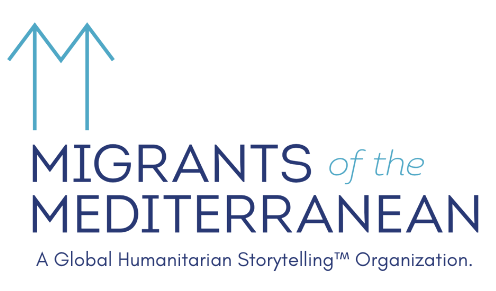MotM Update | Taiwan Dispatch:
Taiwan’s Presidential Elections Through the Migration Lens
©Tsai Ing-wen, on Facebook
by Ying-Yu Alicia
Asia Correspondent
6 February 2020
At 10:00 p.m. on 11 January 2020, election day in Taiwan, I stood in front of the headquarters of incumbent President Tsai Ing-Wen, pro-democracy and pro-progressive country leader, celebrating her landslide victory against Han Kuo-yu, the Trump-like opposite candidate, among thousands of her supporters.
People waved flags, screamed with joy, and hugged their friends with tears.
It was a profound relief for many pro-democracy and pro-liberal Taiwanese.
Why? Because this election has brought a lot of international attention due to Hong Kong’s protests that emerged last June and severe problems of Chinese interference in Taiwan’s media industry.
But Taiwan showed the world that figures like Trump, Johnson, Modi, and more, do not always win. Taiwan showed the world that thoughtful voters can stop vacuous populism and disinformation machines.
Tsai won an overwhelming majority of 8.17 million votes (winning 57% of votes with more than 73% turnout rate), which marked the highest record in Taiwan’s election history. Her party, Democratic Progressive Party (DPP), also retained its majority in the legislature.
Tsai’s solid stance against the “one country, two systems” framework proposed by the Chinese government did affect the result, but her progressive values on supporting freedom, democracy, and human rights were the key to her re-election.
The flags waving in the air represented Taiwan independence, a call for marriage equality, democracy in Hong Kong, and other human rights issues––all were presented at Tsai’s rally. Taiwanese people have been hard-fighting for these progressive values for several decades, and they are determined to defend them.
During her administration, Taiwan became the first country in Asia to legalize same-sex marriage. The government also pays more attention to immigrants and indigenous people, and to promote a more inclusive society. From migrants’ perspectives, Tsai’s re-election also gives hope to migrants and asylum seekers* in its advocacy of human rights.
Prior to the elections, two Filipino migrant workers told me they were praying at home for incumbent President Tsai’s re-election. Meanwhile, opposition candidate Han publicly lashed out at Southeast Asian female domestic workers.
A few Turkish friends residing in Taiwan expressed their support to President Tsai too. In the face of increasing political threats from the Turkish government, they believe Tsai tends to heed the demands of human rights groups, in comparison to her major rival.
At Tsai’s campaign rally, a group of Hong Kongers dressed in black and wearing masks, stood by holding black flags of the protest movement, “Liberate Hong Kong, Revolution of our Time”. After the outbreak of Hong Kong’s demonstrations, hundreds of Hong Kong protesters have come to Taiwan seeking refuge.
After Tsai claimed her re-election, protesters presented a new banner, “We’re Hong Kongese. Thanks to Taiwan for showing real democracy. We also want True universal suffrage.”
©Ying-Yu Alicia Chen
Unlike the opposition candidate Han, who used racist rhetoric toward migrant workers in Taiwan and drew sexist narratives against women at workplace, Tsai’s triumph seemingly lightens up opportunities for non-citizens living in Taiwan, mainly immigrants and migrant workers from Southeast Asia and China, political asylum seekers from various countries, and Hong Kong protesters who recently fled home to seek asylum in Taiwan.
Still, from migrants’** perspectives, it is too early to say Tsai’s victory spells a win for non-citizens being accommodated in Taiwan.
The day after the election, the International Federation for Human Rights (FIDH), in line with several human rights groups, wrote an open letter to re-elected President Tsai with an 8-point human rights agenda. Three are migration-related laws: the need to pass the refugee law, the urgency to amend the current broker system––which has long been considered unfair to many migrant workers; and the need to establish a Department of Human Rights under the executive branch, which would in theory ensure all government policies stay consistent with human rights standards.
Indeed, since Tsai first took office in 2016, the government has touted a positive image of immigrants from Southeast Asia and amended laws which were unfriendly to them. In diversifying Taiwan’s economic and diplomatic partners under Tsai’s New Southbound Policy, she also implemented a few innovative policies, such as adding new immigrant languages to the list of required languages in primary schools and inviting foreign social-media influencers to stay overnight at her presidential office.
However, there are still lacking concrete progress in laws to improve work conditions of 710,000 migrant workers from Southeast Asia. Atrocious migrant worker abuse and a problematic brokerage system have remained unsolved issues for years. And while President Tsai shows her strong support to Hong Kong’s protests, she has avoided discussion of a refugee bill, without which leaves hundreds of asylum seekers living in legal and political limbo.
Taiwan itself is a migrant country, it is not news that Taiwan’s main political parties make a show of supporting migrant rights. Nevertheless, it is doubted if even the incumbent Democratic Progressive Party will take enough stride for the rights of migrants and asylum seekers.
In fact, unlike the recent political climate in Europe and the US, migration issues have never been centered during Taiwan’s election cycle. Taiwan-China relations and the economy, instead, have always taken priority.
There is a lot more to be done. But let us not deny that, Tsai’s landslide victory encourages human rights advocacy.
While witnessing many countries—including Western nations’ steps backwards in human rights policies––the hope remains that Taiwan will do better. Now we ask that the government takes practical steps now to grant basic human rights for those who are in need, and for those who have contributed to Taiwan’s society to make it what it is today.
* Taiwan is still lacking an asylum law but there are some asylum seekers seeking refuge in Taiwan through a case-by-case approach.
** Migrants here include immigrants, foreign workers and residents who do not hold Taiwanese citizenship.
Follow Ying-Yu Alicia on Twitter @yingyuchen9



